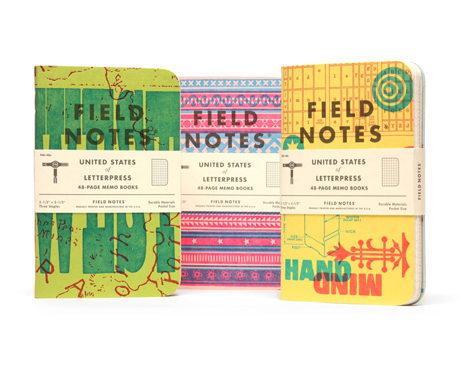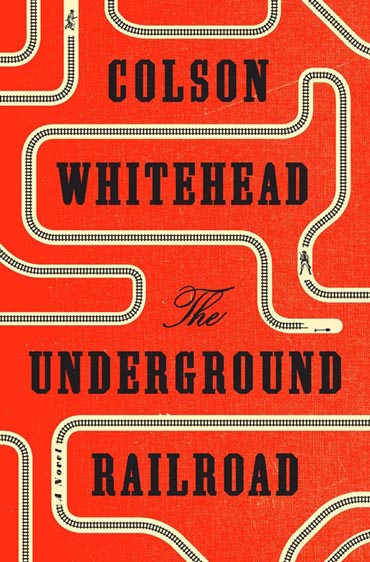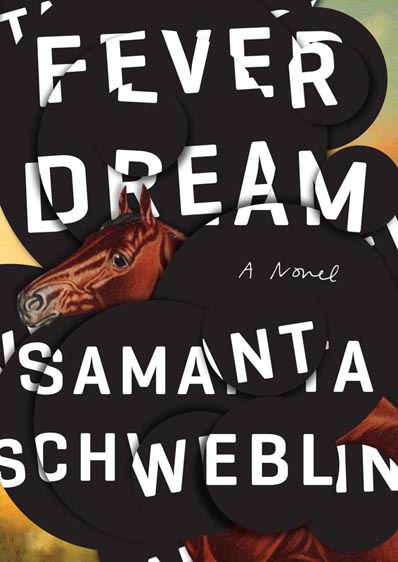-
Oct. 16, 2020
Opening Round
-
Colson Whitehead
The Underground Railroad
v.
Fever DreamSamanta Schweblin
-
Judged by
Natasha Vargas-Cooper
Due to unforeseen circumstances, in lieu of a judgment today (Judge Vargas-Cooper read both books and picked the The Underground Railroad to advance), the ToB’s organizers Rosecrans Baldwin and Andrew Womack are going to share some outtakes from 16 years of bracketing books.
Andrew Womack: What do you recall from the first time we ever discussed the Tournament of Books?
Rosecrans Baldwin: I want to say Brooklyn Social Club, Carroll Gardens, September 2004. Kevin Guilfoile was in town from Chicago. There’d been an article on Slate, I think, where a judge for the National Book Awards or Pulitzers admitted not reading his assigned books, and we were talking about the whole thing being a crock. I’m pretty sure Kevin was the one who tossed out the basic idea: books, brackets, with all the judges’ biases laid bare.
Andrew: I know you both had to explain brackets to me, because I am a bad sports fan.
Rosecrans: Well, you’re good on baseball.
Andrew: True! But also: Back then brackets weren’t the organizing concept for arcane competitions that they are now. I’m sure people must have been using brackets for things like this, but I don’t recall seeing any in our neck of the internet, and really it wasn’t until Twitter that I started seeing elementary school librarians hosting Tournaments of Books, though I don’t know what the chicken-versus-egg situation is there.
Rosecrans: I’m pretty sure the ToB might have inspired the school phenomenon.
Andrew: Either way, it’s wonderful to see.
Rosecrans: Not to mention other bracket-oriented contests, like when Amanda Hesser from Food52 reached out and they started The Piglet.
People occasionally write in with ToB anecdotes, like taking vacation in March just to participate more deeply. We receive photographs of various homemade Rooster-inspired regalia. Bookstores do gorgeous windows and table displays. (Not everyone knows this, but as robust as the Commentariat is, the number of people who comment during the ToB is dwarfed by the number of people reading along without commenting.) We don’t know if David Sedaris’s brother is familiar with this whole event being named after him, but I feel like it’ll happen at some point.
Andrew: Paul, are you in the Commentariat? Give us a sign.
Rosecrans: You know, I called him once, when I lived in North Carolina, to get a bid on redoing my floors, but it went straight to voicemail and I chickened out (no pun intended).
Andrew: Do you have any favorite judgments over the years that stand out?
Rosecrans: I’m drawn to ones that broke the form in different ways. I thought the decision by Merritt Tierce in 2018 between Pachinko and So Much Blue was a knockout, same for Myriam Gurba in 2019, Victor Vazquez in 2015, Victor LaValle’s master class on H.P. Lovecraft from the 2017 Rooster Summer Reading Challenge. And many more!
Andrew: I have many favorites—including those you’ve listed—but I only have one that stands out as the absolute worst decision in ToB history, and that is from 2010 when I chose The Help to advance over Lowboy. Thankfully Alex Balk righted that wrong in the semifinals. But still, what the hell?
Rosecrans: You and I decided around then to remove ourselves as much as possible from the ToB’s gameplay, beyond organizing. We don’t always make smart decisions, but I like to think that was one of them.
Andrew: I can’t even imagine trying to judge and produce this whole thing at this point. There are no hours left—the entire month is all ToB, all the time. And along those lines, one thing I imagine the readers never really know about the Tournament of Books is just how dramatic every March really is.
Rosecrans: Sigh.
Andrew: Every year, something happens. It never fails.
Rosecrans: Never.
Andrew: Actually, let me take that back. Nothing happened the first year, but Dale Peck not rendering a decision in 2006 I would say got that ball rolling, and now I can’t think of a year since where there hasn’t been that moment where one of us emails the other and says, It’s happening.
Rosecrans: Sometimes it’s about the secrecy element. The ToB requires months of production behind the scenes—for our March Tournaments, some of the judges begin reading and making decisions in late December—so it’s a long time to ask someone to keep their lips sealed, especially on social media.
Andrew: Or even not on social media! A few years ago I accidentally updated the match sidebar with the outcomes for the next two weeks. It was up for about 30 seconds.
You know, I may be ToB public enemy number one.
Rosecrans: There was that time in 2013 when a judge tweeted about one of the books he’d been assigned to read, and a sharp-eyed reader noticed it, figured out what it meant, and tweeted as much—and we went into full-out panic mode. (I’ll let the reader out themselves in the comments.)
Andrew: We DMed them, confirmed their findings, and begged them not to reduce that year’s Tournament of Books to a pile of rubble.
Rosecrans: In 2014, an author “resigned” their book from the event, something I still sympathize with. And though this doesn’t have anything to do with secrecy, I remember when Edith Zimmerman had a really thoughtful, nuanced conversation with the novelist Kate Zambreno in 2012 only days after she decided against Zambreno’s book Green Girl. That was also the year we had a wonderful judgment from Roxy Reno, a Reader Judge corresponding from jail.
We’re happy to take questions in the comments if people have any questions on all things ToB. Before we wrap, Andrew, let me put you in the hot seat, see if you can make up for 2010: Between today’s books, Underground Railroad and Fever Dream, how would you have decided?
 Field Notes® Limited Edition for the Fall of 2020 is the “United States of Letterpress,” which features the work of nine independent letterpress shops from across America. This series demonstrates a wide array of craftsmanship, ingenuity, and love for the age-old and tactile process of letterpress printing. Check the the short documentary film too.
Field Notes® Limited Edition for the Fall of 2020 is the “United States of Letterpress,” which features the work of nine independent letterpress shops from across America. This series demonstrates a wide array of craftsmanship, ingenuity, and love for the age-old and tactile process of letterpress printing. Check the the short documentary film too.Andrew: Oh I don’t judge anymore.
Rosecrans: Ha! Yeah, me too. Mostly.
Andrew: Now let me ask you a question. We always say the Rooster is a ridiculous exercise—and yes, it is. But it does have a purpose. What, in your opinion, is the point of the Tournament of Books?
Rosecrans: To read contemporary fiction and talk about it in a way that tries to get around the easy ways of talking about it. So, not in terms of authors, careers, reputations, prizes, reviews, trends. We strive to take books seriously—actually grappling with the stories and what they mean, even when we’re not quite sure what they mean, or what we mean, or how we feel—all while not taking ourselves seriously at all. Also, having fun with books. With strangers. Who become friends. You?
Andrew: I’d add that the Tournament of Books, whether those of us here realize it or not, introduces new readers to contemporary fiction. Many people, it’s true, rarely read books. They may read just one novel a year. And for some, that one novel is the one that wins the Rooster. This is something I’ve seen come up time and again in various forums and chats, how the exercise of running books through this gauntlet—in this very public, transparent way—means readers trust our outcomes as assurance that if they’re going to read a book, it should be this one.
Rosecrans: Oh now we’re definitely never doing this again.
Andrew: The Super Rooster? Oh, we’ll do it again. Plan on it.
New Super Rooster merch is now available at the TMN Store. As a reminder, Sustaining Members receive 50 percent off everything in our store. To find out why we’re asking for your support and how you can become a Sustaining Member, please visit our Membership page. Thank you.
Welcome to the Commentariat
Population: You
To keep our comments section as inclusive as possible for the book-loving public, please follow the guidelines below. We reserve the right to delete inappropriate or abusive comments, such as ad hominem attacks. We ban users who repeatedly post inappropriate comments.
- Criticize ideas, not people. Divisiveness can be a result of debates over things we truly care about; err on the side of being generous. Let’s talk and debate and gnash our book-chewing teeth with love and respect for the Rooster community, judges, authors, commentators, and commenters alike.
- If you’re uninterested in a line of discussion from an individual user, you can privately block them within Disqus to hide their comments (though they’ll still see your posts).
- While it’s not required, you can use the Disqus
tag to hide book details that may spoil the reading experience for others, e.g., “ Dumbledore dies .” - We all feel passionately about fiction, but “you’re an idiot if you loved/hated this book that I hated/loved” isn't an argument—it’s just rude. Take a breath.




